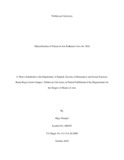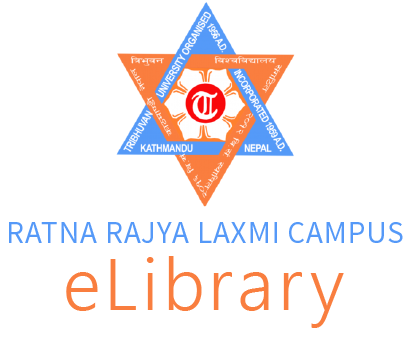Please use this identifier to cite or link to this item:
http://eibrary.ratnarajyalaxmicampus.edu.np:8080/handle/123456789/91Full metadata record
| DC Field | Value | Language |
|---|---|---|
| dc.contributor.advisor | Paudel, Janak | |
| dc.contributor.author | Parajuli, Bijay | |
| dc.date.accessioned | 2021-01-17T07:19:11Z | - |
| dc.date.available | 2021-01-17T07:19:11Z | - |
| dc.date.submitted | 2018 | |
| dc.identifier.uri | http://202.45.147.228:8080/handle/123456789/91 | - |
| dc.description.abstract | Humanity’s relationship with nature has, in recent years, undoubtedly been one of contention and turmoil, an issue which has already gained popularity in popular culture, film and, especially, nature writing. This work examines Jon Krakauer’s Into the Wild, a biography-cum- travelogue about the real life and death of Christopher McCandless, in terms of environmentalism. Through close examination of the ways in which the text portrays nature and its exploitation by using the views and philosophy of different ecofeminists, it is observed that McCandless takes nature as an object. He underestimates the power of nature and uses it as a means to his own ends. For him, nature is a source of pleasure and adventure. Through inspection of the text’s protagonist, Christopher McCandless, and his anthropocentric attitude to nature, we are able to explore why and how the wilderness or the nature is objectified in Into the Wild, in particular and all around the globe, in general. | |
| dc.format.extent | 26 | |
| dc.subject | M.A. English | |
| dc.title | Objectification of Nature in Jon Krakauer's Into the Wild | |
| dc.type | Thesis | |
| Appears in Collections: | Theses | |
Files in This Item:
| File | Description | Size | Format | |
|---|---|---|---|---|
| 400455_Parajuli_Bijay.pdf | 129.19 kB | Adobe PDF |  View/Open |
Items in DSpace are protected by copyright, with all rights reserved, unless otherwise indicated.
